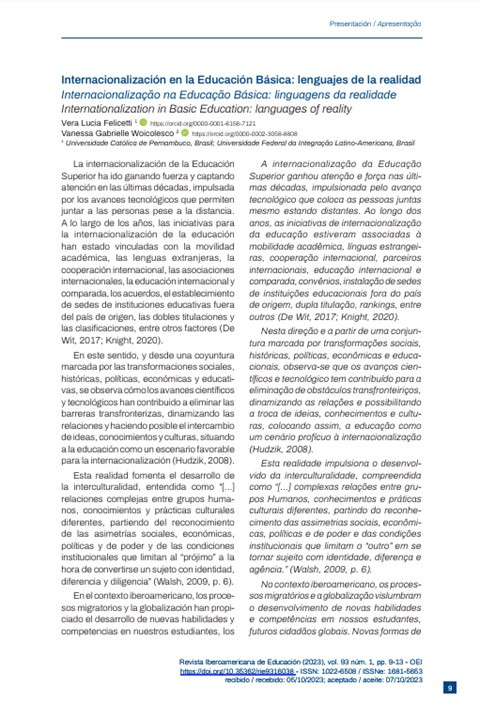
GCED Basic Search Form
Quick Search
Close
Вы здесь
Ресурсы
Internationalization in Basic Education: Languages of Reality(Revista iberoamericana de educación; vol. 93, no. 1)
Место публикации | Год издания | Компиляция:
[Madrid] | 2023 | p. 9-13
ISBN/ISSN:
ISSN 1022-6508
Регион:
Европа и Северная Америка

The presence of internationalization practices in Basic Education schools has been quietly taking shape on the national, Ibero-American and international stage, but the absence of records of the actions that characterize them as internationalization continues to be a gap in their understanding. From these silent practices of internationalization we see the potential to build knowledge while respecting the interculturality that permeates the educational space. In this sense, we must recognize and understand these practices as internationalization processes, with a view to debating and reflecting on how they can contribute to the improvement of the educational system from an Ibero-American perspective.
URL ресурса:
Тип ресурса:
Исследовательские работы / журнальные статьи
Тема:
Разнообразие / культурная грамотность / никлюзивность
Глобализация и социальная справедливость / международное взаимопонимание
Уровень образования:
Начальное образование
Ключевые слова:
international education
Border
Interculturality
Educación Internacional
Frontera
Interculturalidad
